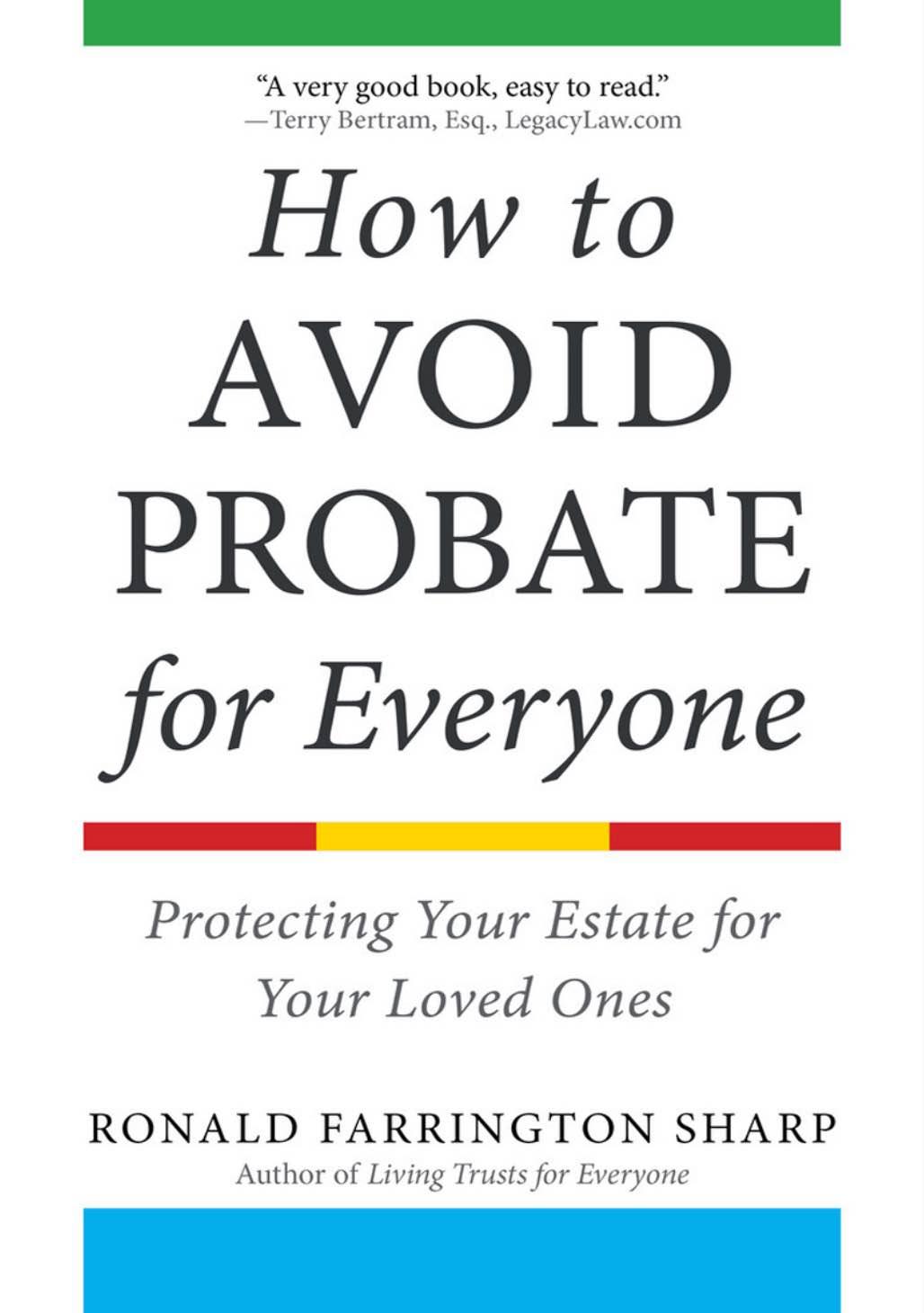Avoiding Probate Using Beneficiary Designations
Beneficiaries can be used for a lot more than just life insurance. The only time life insurance ends up in your probated estate is if there is no named beneficiary, all beneficiaries died before you, or you named your estate as your beneficiary.
Your trust can be your life insurance beneficiary if you want the insurance payout to be distributed in the same way as all your other assets. Or you can name one or more individuals or institutions as beneficiaries. This does not have to be in equal shares. For example, you could do it in percentages, with different percentages for each beneficiary, all totaling 100 percent. Your church or a charity could be named for a percentage. So long as beneficiaries are named for the entire insurance payout, no probate is needed. Remain aware of what you have done. If a named beneficiary dies before you, depending upon the terms of the policy and state law, you might be leaving the deceased beneficiary’s share to his or her estate, which means probate. If you divorce, remember to change your beneficiaries to avoid complications with the ex.
Also, you do not want to name minor children as beneficiaries because the court will, except where the dollar amount is small, appoint a conservator for them to manage the money until they are of age, and that conservator is likely to charge fees for that service. It is far better to name a probate-free trust as the beneficiary and have those funds added to other inheritances for the children and managed in the same way, even beyond the age of majority.
If your probate-avoiding plan involves beneficiary designations, any people objecting to the named beneficiary receiving anything will have a tough time, since these can be very difficult to challenge, unlike a will.
If you want a disabled person who is receiving governmental assistance to benefit from insurance funds, do not name them as a beneficiary even if they are of age. Government programs such as Medicaid usually are need-based. If a recipient inherits money, they could be disqualified from their benefits until the money is spent down, and thus would in fact receive no benefit from the money left to them.
Rather, leave the money to a properly drafted discretionary trust that will avoid disqualification, yet allow the recipient to get benefits from the fund. Alternatively, you could leave the money to someone else, a sibling perhaps, with the understanding that they will use it to benefit the disabled person. While this understanding might not be legally enforceable, in most cases it will be a safe arrangement.
Life insurance policies can also have a structured installment payment beneficiary designation. In the event you have a beneficiary who is likely to waste a lump sum insurance payout, leaving the insurance to them with instructions that it be spread out in annual payments over a period of years ensures that they will have a guaranteed income during that time. A bonus is that life insurance benefits are not taxable income. Some insurance companies will even reduce the policy premiums if the installment payout plan is selected.
Pay-On-Death (POD) and Transfer-On-Death (TOD) Accounts
Similar to beneficiary designations, these allow the owner of certain accounts to direct who will inherit the asset on death without resorting to probate. TODs are typically for investment or retirement accounts, while PODs are for bank accounts such as savings, CDs, and money market accounts. While the person named as the transferee can take the asset directly, it is also possible to name a trust as the beneficiary so that the asset is added to the trust principal. If the assets transferred are investments that have appreciated, the new owner receives a stepped-up tax basis and should not have to pay capital gains tax on the appreciation in value. (Be sure to check all current tax rules on anything mentioned in this book, since tax and other laws change frequently and I am not allowed to give tax advice in this book.)
Some institutions and states will not allow a bank account to be titled in the name of a trust, so a POD designation is the alternative. Account types might also allow a beneficiary, which is effectively the same thing.
To create one of these designations, the bank or other institution will have a fill-in-the-blank form for you. This can be changed at any time. To collect, the designee merely has to show identification and provide a copy of the death certificate.
Do not just put someone else’s name on your investment or deposit accounts as a co-owner. Doing so not only means that they now can access the accounts for their own use, but also that the account might be subject to the new co-owner’s debts, lawsuits, garnishments, taxes, or student loans. Be safe, not sorry.
(To be continued...)

This excerpt is taken from “How to Avoid Probate for Everyone: Protecting Your Estate for Your Loved Ones” by Ronald Farrington Sharp. To read other articles of this book, click here. To buy this book, click here.
The Epoch Times copyright © 2023. The views and opinions expressed are those of the authors. They are meant for general informational purposes only and should not be construed or interpreted as a recommendation or solicitation. The Epoch Times does not provide investment, tax, legal, financial planning, estate planning, or any other personal finance advice. The Epoch Times holds no liability for the accuracy or timeliness of the information provided.





